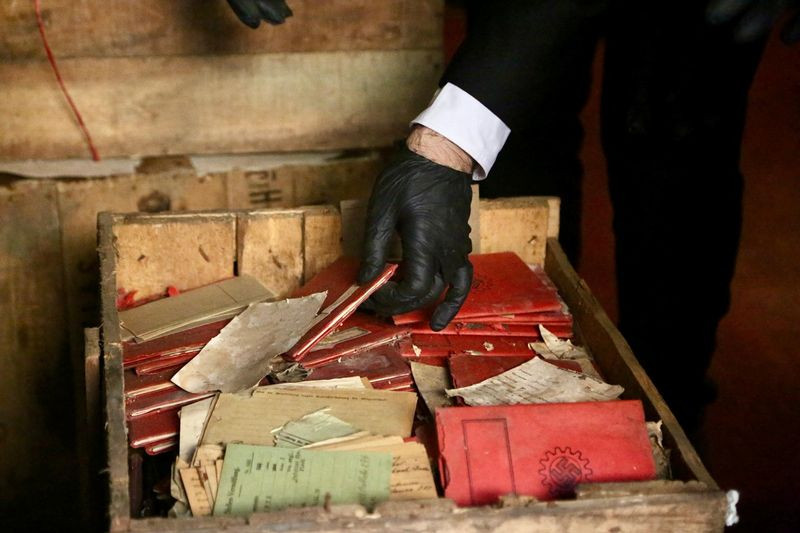Cliff Notes – Argentina’s top court finds 80 boxes of Nazi items in basement
- Argentina’s Supreme Court discovered 83 boxes of Nazi materials, including propaganda and photographs, while preparing for a museum project.
- The boxes originated from a German embassy shipment in Japan during WWII, initially claimed to contain personal effects, but were confiscated by customs due to their content.
Argentina’s top court finds 80 boxes of Nazi items in basement
Argentina’s Supreme Court has found dozens of boxes filled with Nazi material among its archives in its basement.
The 83 boxes hold documents including postcards, photographs and notebooks, as well as propaganda material, the court said on Sunday.
Court employees discovered the material by chance while preparing for the creation of a museum.
“Upon opening one of the boxes, we identified material intended to consolidate and propagate Adolf Hitler’s ideology in Argentina during the Second World War,” the court said.
The court has invited Argentina’s Holocaust Museum to help document and preserve the materials.
Experts will also examine them for any clues that can “shed light on still-unknown aspects” of the Holocaust, such as international financing networks used by the Nazis, the court said.
Where did the Nazi boxes come from?
The boxes were sent by the German embassy in Japan to Argentina during World War II aboard a Japanese steamship, according to the history that the court was able to piece together.
Germany’s diplomatic mission in Argentina had claimed the boxes contained “personal effects”
But customs authorities at the time randomly searched several boxes and found the Nazi material. Experts will examine the Nazi items to shed light on still-unknown aspects of the HolocaustImage: Argentina Supreme Court/AP/picture alliance
Concerned that the quantity and nature of the material could affect Argentina’s neutrality during the war, officials confiscated the 1941 shipment, the court said.
The case was then referred to the Supreme Court. It isn’t sure what action the court took at the time.
What was Argentina’s role during World War II?
Although Argentina remained neutral for much of World War II, the European Holocaust Research Infrastructure site notes that a “significant portion of Argentina’s population was of German origin” and that “Nazi propaganda was highly influential.”
Just months before the war ended, however, Argentina declared war against Japan and its ally, Germany.
Fleeing Nazi persecution in Europe, some 24,000 Jews entered Argentina between 1933 and 1943, according to the Holocaust Encylopedia.
Another 20,000 Jews entered the country illegally.
Argentina’s President Juan Peron, who came to power in 1946, was a prominent Nazi sympathizer and the country became a haven for Nazi Germany’s war criminals after the end of World War II.


